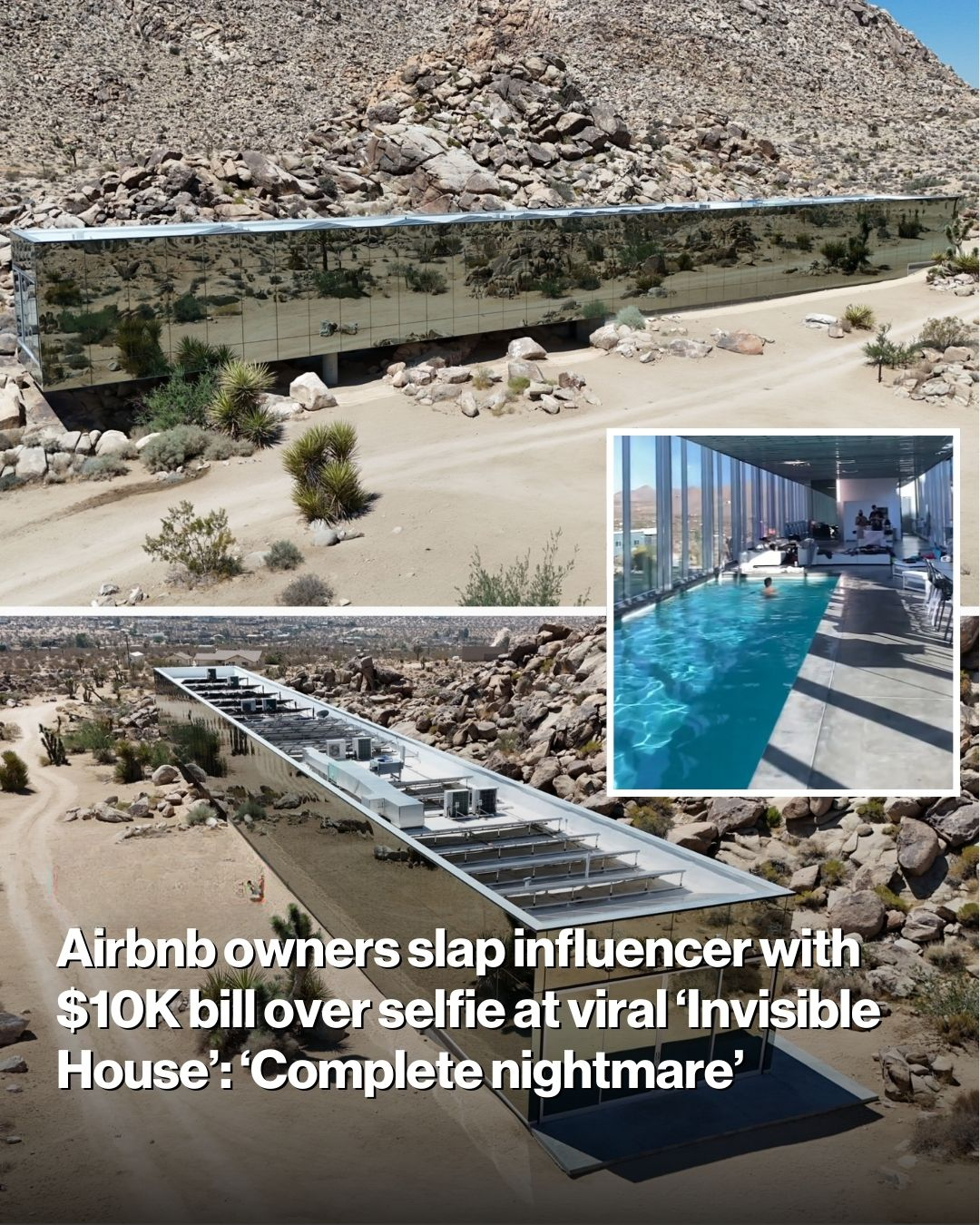What might look like a glamorous desert escape turned into a financial nightmare for one traveler who says he was blindsided by a massive bill after staying at one of the most famous Airbnbs in California. The “Invisible House,” a sleek glass-wrapped mansion in Joshua Tree, has gone viral online for its futuristic design and star-studded guest list, but TikToker Sean Davis (@seanmdavis) claims that his short stay there left him with a shocking $10,000 fee over what he insists was nothing more than a selfie.

Davis, who shared his story in a viral TikTok that has now racked up more than 1.3 million views, said he rented the $2,400-per-night property believing it would be the perfect spot for a casual shoot. Known for its reflective exterior that seems to vanish into the desert landscape, the 5,500-square-foot home has been featured on Netflix’s World’s Most Amazing Vacation Rentals and has hosted celebrities like Demi Lovato, Lizzo, and Diplo. Built by producers Chris and Roberta Hanley on 90 acres of land bordering Joshua Tree National Park, the sprawling house comes with futuristic amenities like a 100-foot indoor solar-heated pool, eco-friendly smart features, and a mirror-like façade that creates a surreal backdrop for photos.
But Davis’s dream booking unraveled quickly when he learned that the property had strict rules regarding photography that he claims were not clearly disclosed upfront. According to Davis, the entire dispute began when a friend’s girlfriend took a casual selfie in the bathroom and tagged a brand on Instagram. That single post was later reshared, which, according to the owners, triggered a clause in the rental agreement requiring additional fees for commercial use of the property in brand-related content. “We didn’t actually shoot any brand content in the house,” Davis clarified in a follow-up video.
“We shot outside, but they had an issue with a selfie.” Despite this, he was hit with a $10,000 charge, a figure that he says felt like a shakedown. He described the ordeal as “a complete nightmare” and warned others that while the house looks stunning online, staying there may come with hidden strings attached. Davis also complained that beyond the unexpected bill, the actual experience of sleeping in the glass house was far from luxurious. At night, he said, the mirrored design made it impossible to see out while allowing outsiders to see directly in, creating a sense of vulnerability and discomfort.
On top of that, he described loud cracking sounds echoing through the structure, comparing it to the noises a skyscraper makes, and said they kept him awake all night. “Worst part is it cracks like a skyscraper all night and is so loud,” he said, insisting that the much-hyped house failed to live up to expectations. While Davis expressed frustration at what he considered unfair treatment, not everyone online was sympathetic to his situation. Several commenters pointed out that charging additional fees for photo shoots or commercial content is standard practice in the hospitality and real estate industries.
“My uncle has an Airbnb, and the daily rate is $1,000, but brand shoots are $10k. Seems pretty standard,” one person commented. Another wrote, “As someone who used to run a property with frequent filming, that’s about right. It’s industry standard to pay for locations for commercial advertising use. Welcome to the industry! No one makes this same mistake twice!” These responses suggest that while Davis may have been caught off guard, those familiar with luxury rentals see the extra charges as a routine cost of doing business when content creation is involved. Still, Davis insists that what happened to him was unfair, since the content in question was not an orchestrated shoot but a casual selfie posted by a guest.
He believes the fine print of the rental agreement was unclear, leaving him and his group feeling exploited after already paying thousands for their stay. The situation has sparked a larger conversation online about transparency in short-term rentals, especially those that are marketed as luxury or “Instagrammable” properties. With social media influencing so many travel decisions, many guests naturally want to share their experiences online, yet properties like the Invisible House may impose strict rules that can result in hefty penalties. Davis’s experience is now serving as a cautionary tale for travelers and influencers alike: always read the fine print before booking, especially when planning to create or share content.
What seems like a dream vacation rental might actually hide costly surprises behind its glossy photos and viral reputation. As Davis summed it up, “Looks cool, but is a complete nightmare.” For some, the Invisible House may remain a bucket-list destination, but for others, Davis’s ordeal reveals that the most “invisible” thing about it could be the fine print.





